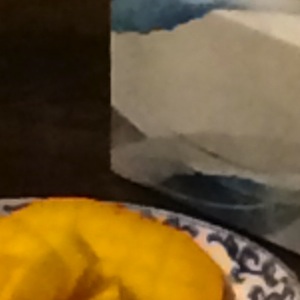With a band name like Fuzzy P, and a 2015 debut release entitled the Fuzz EP, it is only fitting to talk about Amateur Alchemy in terms of its fuzz. Is the fuzz used to elevate some already seriously rocking tunes, or is it meant to paper over the cracks in flimsy songwriting? Fuzzy P do not let slip which side of they’re on. Instead, they keep it fuzzy. But by putting “amateur” right there in the title, and having a completely forgettable album cover, they seem to offer some initially troubling hints – though maybe it’s all just amateurish.
But being fuzzy and amateurish never stopped Sebadoh, or Silver Jews, or any of the other ‘90s rock bands who have shaped Fuzzy P’s sound. These are ideas that have been aped and imitated by countless bands – fortunately, Fuzzy P are not content to coast by on hero worship and lackadaisical ethos alone. Looking behind the fuzz reveals an album that throws everything at the wall – for better or for worse. While the jangle-pop of “Esme” and the punk posturing of “Somewhere Else,” both seem to put their aesthetic over any actual hooks, the majority of Amateur Alchemy comes off as a joyful ride across the indie canon. This is especially true for the opening power-pop of “Fluorescent Light,” an exuberant song whose peppy style is not replicated anywhere else. Daniel Tessy’s keyboards improve on this variety by adding some much-needed textural diversity – most notably on “Wastewater,” where he seemingly has his Rhodes on the lesser-spotted ‘marimba’ setting. I wasn’t expecting this self-described ‘jam band’ to stretch themselves to such an extent. I also doubt any of Fuzzy P’s ‘90s idols were quite brazen enough to try the squiggly synth solo that ends “Hoverboard Road.”
Despite all this, it is a comforting thought that “Season 3,” the fuzziest track on Amateur Alchemy, might also be the record’s best. This song is the only one where guitarist Lauren Nelson sings lead, and serves as a welcome break from Joey LeBrun’s occasionally grating deadpan delivery. Nelson’s understated vocals, near-buried by the surrounding murk, act as a point of beauty amongst all the ugliness. There is, however, life for Fuzzy P beyond the fuzz, as evidenced by the closing track “One Trick Pony,” which lopes by on folky charm and an extended harmonica solo. This is just one further example on an album that finds moments of quality with and without Fuzzy P’s namesake distortion. How they will choose to develop their sound next, however, is anyone’s guess.


